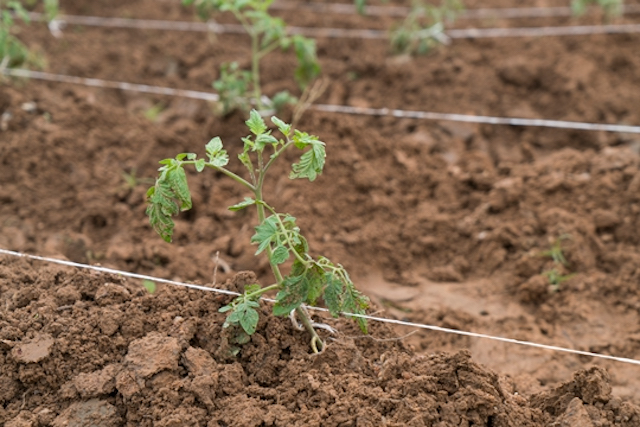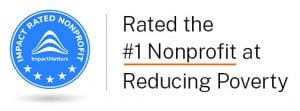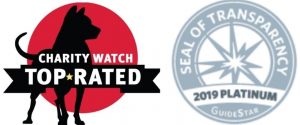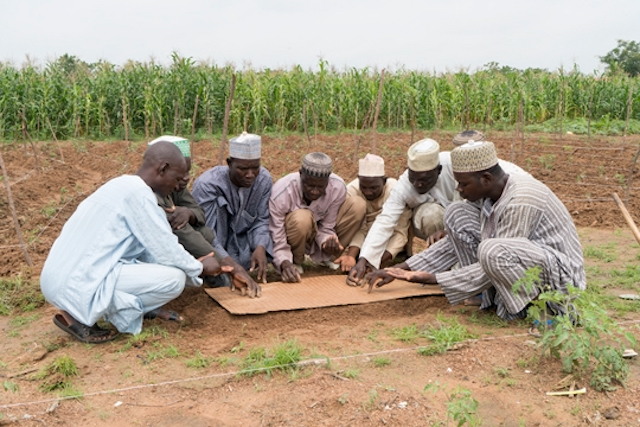
Approximately one-third of all food produced in the world for human consumption is wasted. In sub-Saharan Africa, where food security is a huge concern, the majority of food waste occurs at the post-harvest level because of poor harvesting practices, lack of appropriate storage facilities and transportation, poor packaging materials, and product spillage.
The Link Between Climate Change and Food Security
In Nigeria, tomatoes are an important food source, but nearly half of the tomatoes produced by smallholder farmers are lost each year. Post-harvest loss, which is exacerbated by climate change, contributes to food insecurity and reduces the income of smallholder farmers, processors, service logistics providers, and retailers.
In 2016, TechnoServe partnered with the Rockefeller Foundation and Syngenta Foundation on the YieldWise program, which works to improve smallholder farmers’ livelihoods and reduce food waste in Kenya, Nigeria, and Tanzania. The farmers in these regions face many challenges, particularly as they learn to adapt to a changing climate.
Traditional efforts to improve food security have focused on increasing agricultural yields and introducing technologies to reduce post-harvest losses. However, the effects of climate change – including increased soil salinity, extreme temperatures, changes in moisture content, and the unavailability of suitable tomato seed varieties – have made it difficult to increase and sustain year-round tomato production. This is particularly concerning because by 2050, an estimated 60% increase in food production will be required to feed the global population.

How Climate-Smart Training is Helping Farmers Thrive
Ladi Godwin, a 32-year-old mother of four in Kaduna state, participated in the YieldWise program and learned new practices for managing unpredictable weather and reducing post-harvest losses. She had been farming tomatoes for 10 years, but was never able to expand her production, and eventually decided to focus on crops like maize and millet instead.
When she heard about the YieldWise program, however, she was intrigued.
In addition to training on good agricultural practices, the program is teaching farmers how to use evaporative cooling chambers – coolers that use evaporation to keep perishable food fresh – and how to set up in-home food processing units.

 |
Cooling chambers preserve fresh tomatoes, while in-home processing allows farmers to turn their fresh tomatoes into paste or dried forms, thereby extending the shelf life and increasing the market value. Farmers who processed their tomatoes were able to gain an aggregate additional income of $1.4 million from tomatoes that would have been wasted if not processed.
Tomatoes are sensitive to wet, humid conditions, so most tomato farmers prefer to grow during the dry season (November through March). During this time, tomato prices are low and local supply is high, forcing farmers to sell their tomatoes at suboptimal prices. If there are no buyers, much of the tomato harvest is wasted. In contrast, during the wet season it is more difficult to grow tomatoes, leading to low supply and high prices.
Jarrath Longkwan is a wet season tomato farmer in Plateau state. “In 2017, I lost my entire tomato farm to diseases because I had no idea of how to prevent or control them,” he recalls. “I could not meet up with basic needs, such as house rent and feeding.”
Through the YieldWise program, Jarrath learned about good agricultural practices, improved seed varieties, production staggering, and zero-energy cooling, which helped him improve yields and reduce post-harvest losses.
“I made over $110 more in profits this year compared to previous years. I have also taught nine of my friends what I learned.”

Food Security in Nigeria and a Path Forward
For Nigeria’s food production to keep up with its growing population, many more farmers like Ladi and Jarrah will need to adopt climate-smart techniques, such as post-harvest reduction technologies, staggered cultivation, and good agronomic practices.
The project’s goal is to work with 45,000 farmers over three years to reduce their post-harvest losses by 50% and increase their incomes by the same amount. “Reducing post-harvest loss means food security and maximization of natural resources,” says Olorunfemi Toyin, TechnoServe’s YieldWise senior program manager. “We all need to work harder and smarter to win the war against food loss.”
You can help cultivate the success of farmers like Ladi so she can grow her income in the face of climate threats.



